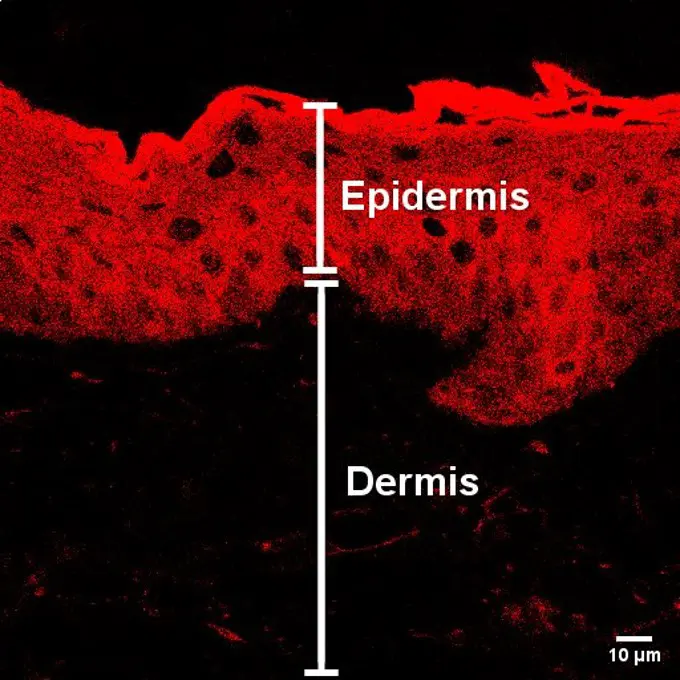Ranime carried out her research in the SMODD team at the Softmat laboratory.
On February 12th, she defended her thesis entitled: “Assessment and optimization of the therapeutic potential of an anti-inflammatory dendrimer by its formulation in catanionic vesicles for the topical treatment of psoriasis”
Psoriasis is a chronic inflammatory skin disease. It is characterized by an abnormal proliferation of keratinocytes, dilation of dermal blood vessels and an infiltration of inflammatory cells into the skin. Although effective, the side effects of anti-psoriatic treatments limit their long-term use.
A Poly(PhosphorHydrazone) dendrimer capped with AzaBisPhosphonate groups, called ABP, has previously been shown to have anti-inflammatory properties both in vitro and in animal models of chronic inflammatory diseases. The aim of our study is to assess and optimize the therapeutic potential of ABP dendrimer as a new approach for psoriasis therapy.
We have shown that ABP dendrimer applied topically in physiological buffer, without specific formulation, significantly reduced the inflammation induced by imiquimod in mice. However, the therapeutic efficacy of the ABP dendrimer for the topical treatment of psoriasis should be improved. The barrier properties of the stratum corneum and physicochemical properties of the ABP dendrimer both contribute to limit its skin penetration and therefore its therapeutic efficacy by topical route.
In order to maximize its therapeutic effects, we have formulated the dendrimer in an innovative delivery system, sugar-derived tricatenar catanionic vesicles. These catanionic vesicles, developed in our team, are formed from a bilayer of two opposite charges surfactants. In addition to their biocompatibility, these catanionic vesicles have previously demonstrated their ability to promote skin penetration of active ingredients when their bilayer is in fluid state. After optimization of dendrimer formulation in catanionic vesicles, we obtained stable vesicles capable of encapsulating approximately 80% of the dendrimer. We have also shown that the insertion of the dendrimer into the vesicular bilayer makes it fluid at skin temperature. Our studies ex vivo have successfully shown that the formulation of dendrimer in catanionic vesicles allows deep skin penetration of the dendrimer into the viable epidermis and dermis. Finally, we have demonstrated that TriCat / ABP-A formulation improves the efficacy of dendrimer in murine model of psoriasis induced by imiquimod.
Altogether, our results highlight the potential of this innovative formulation to deliver dendrimer to the deeper skin layers for the treatment of psoriasis.

section of pig ear skin showing cutaneous penetration of the dendrimer (in red)
thanks to its formulation in catanionic vesicles of TriCat
Highlight of the thesis:
- A patent entitled “Formulation of an anti-inflammatory dendrimer for the treatment of psoriasis” (PCT/FR2020/052608) has been filed.
Congratulations to Ranime for the quality of her work!
